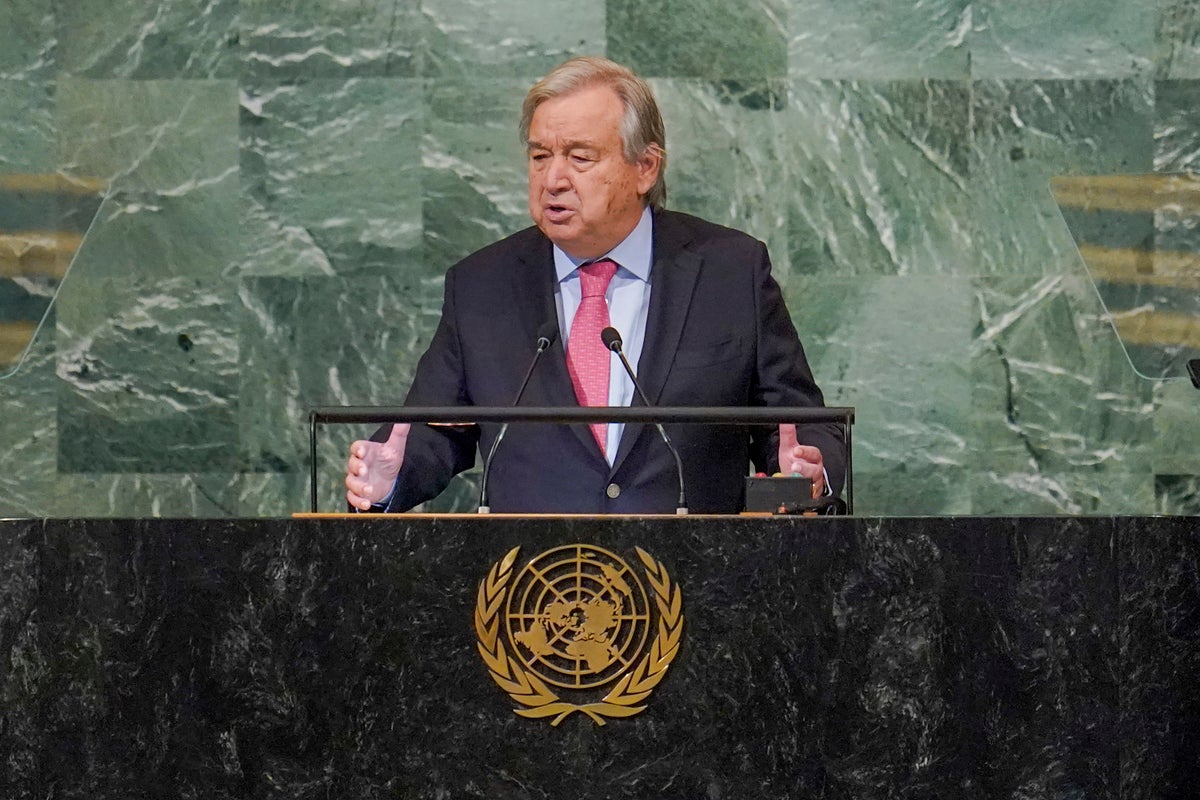
North Korea on Wednesday accused U.N. Secretary-General Antonio Guterres of “an extremely unfair and imbalanced attitude,” as it lambasted him for condemning its recent missile test but ignoring alleged U.S. hostility against the North.
After the North’s intercontinental ballistic missile test on Saturday, Guterres strongly condemned the launch and reiterated his call for the North to immediately desist from making any further provocations. In a statement, Guterres also urged North Korea to resume talks on denuclearization of the Korean Peninsula.
“To be most deplorable, the U.N. secretary-general is going on the rampage of illogical and miserable remarks, which are little different from those of U.S. State Department officials over the years,” Kim Son Gyong, the North’s vice foreign minister for international bodies, said in a statement carried by state media.
Kim said North Korea’s ICBM test was a response to the security threat the U.S. posed to the North by temporarily deploying long-range bombers for joint training with South Korea earlier this year. Kim said the test was also a warning to the earlier convocation of the U.N. Security Council on the North.
North Korea views U.S.-South Korea military drills as an invasion rehearsal and is particularly sensitive to the U.S. mobilization of B-1B bombers that can carry a massive conventional payload of both guided and unguided weapons. After the North’s ICBM test, the United States flew B-1B bombers again for separate drills with South Korean and Japanese warplanes.
“The U.N. secretary-general should clearly understand that his unreasonable and prejudiced stand on the Korean Peninsula issue is acting as a factor inciting the hostile acts of the U.S. and its followers against (North Korea),” Kim said.
Last November, North Korean Foreign Minister Choe Son Hui called Guterres “a puppet of the United States” for condemning an earlier ICBM test by the North.
Saturday’s ICBM test, the North’s first missile test since Jan. 1, was made on a steep angle to avoid neighboring countries. The reported launch details again suggested the North has missiles that can reach the U.S. mainland. But many foreign experts say the North still must develop some last remaining technologies to acquire functioning nuclear-tipped missiles, such as one shielding missiles from the harsh conditions during atmospheric reentry.
In response to the latest U.S. deployment of B1-B bombers on Sunday, North Korea said its 600-millimeter multiple rocket launcher fired two rounds off its east coast the next day. North Korea has said its rockets can carry nuclear warheads. South Korea views the weapons as a short-range ballistic missile.
South Korea and the United States are to hold a set of joint military drills in coming weeks, including a table-top exercise set to take place at the Pentagon on Wednesday.
Last year, North Korea test-launched more than 70 missiles, the most ever in a single year, as part of its efforts to enlarge its weapons arsenal. Observers say the North would eventually want to win international recognition as a legitimate nuclear state and use that status as a way to get U.N. and other international sanctions on it lifted.







